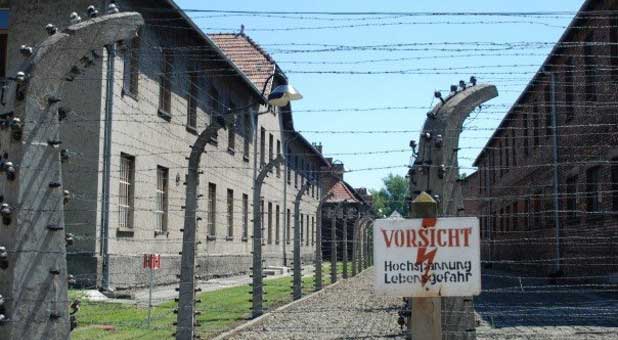Recently, I had coffee with a prominent Christian journalist visiting Jerusalem. At one point our conversation turned to the Holocaust, and I was surprised by his question whether or not the Holocaust was part of the Israeli national psyche.
I was surprised because he is someone both knowledgeable and well-connected and because, since childhood, not only has the Holocaust been part of my psyche, but since living in Israel, I’ve seen how evident it is here. And despite being largely untouched by the systematic murder of European Jewry, Jews from the Arab world also empathize with the feeling, having experienced persecution in the Arab countries they came from.
During my conversation and as a follow-up, strangely perhaps, I thanked the journalist for the “wonderful gift” of being asked to talk about the Holocaust. Afterward, I sent him two articles I wrote when my daughter went to Poland a few years ago, “Shabbat in Poland” and “Poland Post Mortem.” I shared another article from 2003 as well. All were very personal.
I wrote, “I think that you’ll see that while maybe not all Jews, certainly among most of us, the Holocaust is very much part of our psyche. Sharing these articles let me relive all the feelings and emotions with which I wrote them, and I send this to you with tears in my eyes. Thank you.”
That visit came to mind this week as Israel marks Yom HaShoah, Holocaust Memorial Day. It’s hard to write about the Holocaust personally and to share an Israeli perspective without risking being trite while also conveying the enormity of the tragedy with respect and honoring those murdered. Yet I cannot not write about this event and Israel’s observance of the annual memorial.
Few are not already aware of the horrors of the Holocaust—that 6 million Jews were murdered, among them 1.5 million children. For me it’s personal in that two of my fathers’ grandparents and many cousins, uncles, aunts and others who were close enough relatives that we know their names were among the victims. Two of my own children carry the names of our murdered relatives today.
Despite this, it’s very hard to comprehend the enormity of the mass murder of 6 million people. I saw a book recently that simply printed the word Jew 6 million times. In an average font size, on two sides, the book is about 2 inches thick. Others have collected 6 million paper clips, buttons and more. Still, comprehending the enormity is very hard.
For that reason, it’s common among most Israeli high schools to offer a trip to Poland to learn and bear witness. While the number of living Holocaust survivors decreases every year (now somewhere around 250,000 in Israel) and many live in poverty (which is another crime), the next generation takes in these experiences so as never to forget, especially when the last of the survivors are no longer with us.












